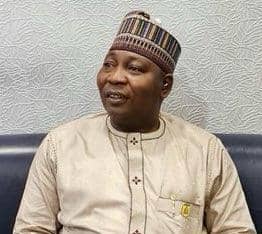
As part of efforts to transform and reposition the Nigerian Institute of Public Relations (NIPR), the President and Chairman of the Governing Council has set up 5 Work Teams with their roles clearly spelt out.
According to a press release signed by Uzoma Onyegbadue, Registrar/Secretary of Council, the first team saddled with repositioning the National Secretariat is led by the Vice President, Prof Emmanuel Dandaura, fnipr.
“The main responsibility of this Team is to Review the content and implementation status ofthe 2014 NIPR Corporate Governance and Administrative Restructuring Report (CGARR); and Conduct an audit of the staff of the National Secretariat to produce the current staff disposition list and make recommendations that could enhance staff motivation and other establishment matters, as well as Identify new challenges, not captured in the CGARR, that are affecting smooth operations of the National Secretariat.
99
Team two is expected to review Council Committees and it is led by ranking Council Member, Dr Sule Yau Sule, FNIPR.
The statement says it is charged with “responsibilities to Conduct an audit of the functions and composition of extant Council Committees; Identify statutory/standing Council committees as specified in the NIPR Act; Review the performance of the previous Council Committees to identify the learning points that could assist the Council in avoiding the pitfalls of the past; and Make Recommendations that could .assist Council design committees that will be functional and effective in meeting the needs of NIPR.
Team Three according to the statement is for Sustainable Sources of Funding NIPR Activities and Programmes.It is led by “Council Member Ini Ememobong, MNIPR to amongst others, Review existing sources of funding available to the Institute to identify gaps and best practices that would guide Council in ensuring sustainable revenue henceforth; Assess the level of
compliance to the 2014 NIPR Financial Guidelines and make necessary recommendations for improvement where necessary; Recommend new
and alternative sources of funding revenue for N I PR Programmes and activities and Recommend creative strategies and mechanisms
that the Council could deploy to ensure effective revenue mobilization and sustainable financial best practices.”
Team Four which is to ensure Compliance to NIPR Act, under the leadership of Brig. Gen SK Usman Rtd. , FNIPR, is saddled with “responsibilities to Review the extent to which public and private organisations comply with the NIPR Act which prohibits the use of quacks for PR functions in Nigeria; Map all cases ofviolation ofthe Act that have been entertained by Nigerian Courts and identify good practices that could assist the Council in ensuring better compliance and enforcement of the Act; Identify the loopholes that violators exploit to circumvent the Act and how such could be blocked; Assess readiness of the national secretariat to engage in effective enforcement of the Act; Recommend steps to be taken by the Council to facilitate strict compliance and enforcement of the NIPR Act, including identification of possible compliance ambassadors/vanguards or resource persons in this regard; and Liaise with the Office of the Attorney-General of the Federation to ascertain the procedure or requirements for setting up the tribunal to try NIPR Act violators by the Attorney General as specified in the Act.”
Finally, Team Five is for NIPR Programmes and Ideas, led by the Vice President, Prof. Emmanuel Dandaura, FNIPR
Its duty includes to “Collate the ideas and programmes of G29 members (all Council Election Candidates) and harmonise them into a working document that could serve as input to the NIPR Strategic Plan of Action; Conduct a needs assessment of the expectations of NIPR Members and make relevant recommendations that could assist the Council in understanding the yearnings and expectations of members of the Institute; and Make other recommendations that could enrich the process of evolving a strategic plan for the Institute (2023-2032)”, according to the statement.





